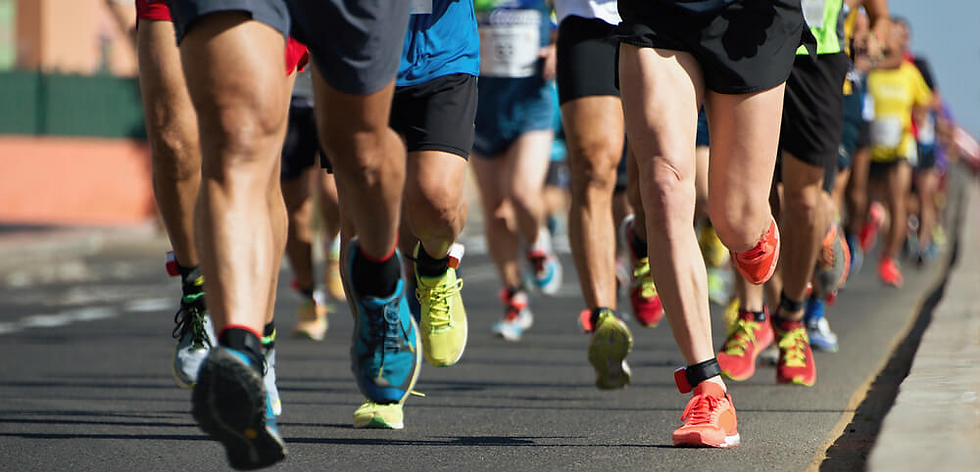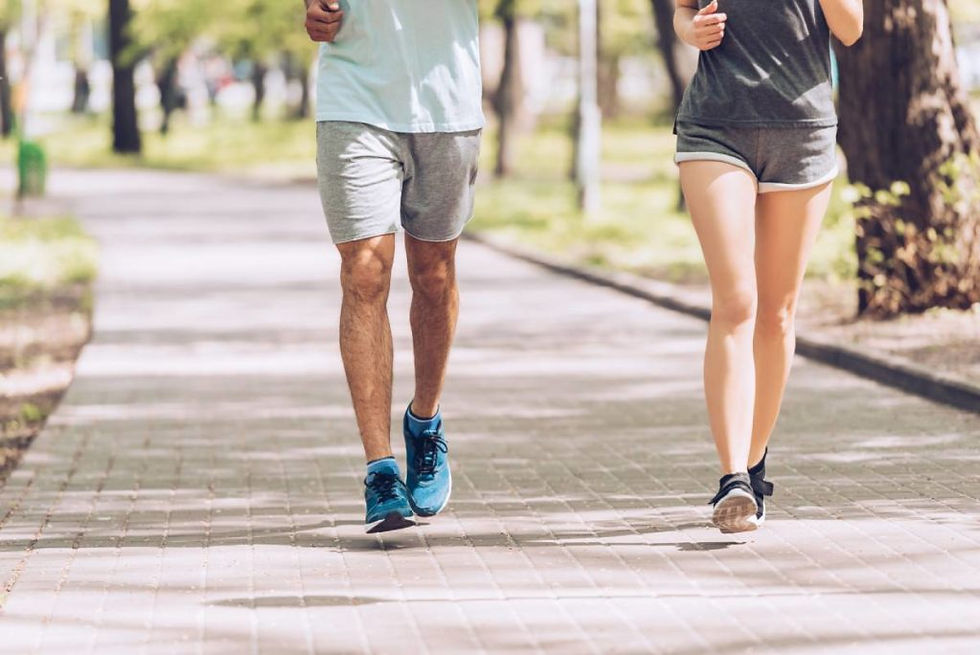HYDRATION AND JOINT HEALTH : WHY DRINKING WATER SUPPORTS YOUR KNEES
- Team PhysioQinesis : Credit Dr. Rutuja Badade
- Nov 9, 2024
- 3 min read
Updated: Feb 7

Keeping hydrated is essential for overall health, but when it comes to joint health—especially the knees—adequate hydration can make a profound difference. Many people associate drinking water with skin clarity, energy, and digestion, yet it plays a key role in protecting the structure and function of our joints. Here’s a closer look at how staying hydrated impacts your knees and helps maintain their mobility, comfort, and resilience.
1. Understanding Joint Structure and Synovial Fluid :
The knee joint is one of the largest and most complex joints in the body, where bones, cartilage, ligaments, and tendons all work together to enable movement. Between the bones lies a special fluid called synovial fluid, which acts as a lubricant. Synovial fluid cushions the bones, allowing them to glide smoothly over each other, reducing friction and wear on the joint surfaces.
Why Water Matters: Synovial fluid is composed primarily of water. When you're well-hydrated, synovial fluid maintains its ideal viscosity, offering cushioning and protection. Insufficient hydration can lead to thicker, less effective synovial fluid, which may cause more friction and, over time, wear down the cartilage in the knee.
2. Water Supports Cartilage Health :
Cartilage is the flexible tissue that covers the ends of bones in the knee joint, enabling smooth, pain-free movement. It’s also made up of about 80% water. Cartilage doesn’t have a blood supply, so it relies on synovial fluid to bring in nutrients and remove waste products.
Why Water Matters: When you drink enough water, it enhances the body’s ability to nourish the cartilage in the knees. Proper hydration keeps the cartilage “plumped up” and elastic, which improves its shock-absorbing qualities and helps protect it from damage. Conversely, chronic dehydration can contribute to cartilage breakdown, which may lead to stiffness and joint pain over time.
3. Dehydration and Joint Stiffness:
Many people notice increased stiffness in their joints when they are dehydrated. This is because dehydration can lead to a loss of elasticity and flexibility in tissues, making movement more uncomfortable or restricted.
Why Water Matters: When the body is fully hydrated, the connective tissues surrounding the knee joint are also better hydrated and pliable. This flexibility reduces tension and pressure on the joint, helping you move more freely. On the other hand, when dehydrated, tissues can become stiff, leading to decreased range of motion and potentially increasing the risk of injury.
4. Hydration Reduces Inflammation:
Inflammation can affect joint health, especially in conditions like arthritis, where the knee joint is prone to inflammation and pain. Dehydration can exacerbate inflammation because it makes it harder for the body to flush out toxins and maintain balanced electrolyte levels, which are crucial for controlling inflammation.
Why Water Matters: Adequate hydration helps manage inflammation levels, as water aids in detoxifying the body. It also helps with circulation, ensuring that inflammation-fighting nutrients and oxygen are efficiently delivered to the knee joint. By staying hydrated, you can help prevent inflammatory flare-ups that can damage the knees over time.
5. Improved Muscle Function and Joint Support :
Muscles support your knee joints, helping to absorb shock and stabilize the knee during movement. Muscles are heavily reliant on water to function efficiently, and dehydration can impair muscle performance.
Why Water Matters: Proper hydration enhances muscle function, which in turn stabilizes and protects the knee joint. Drinking enough water helps muscles maintain their contractility, power, and endurance, which is especially important for activities that put stress on the knees, like running, squatting, or climbing stairs.
Tips for Staying Hydrated for Knee Health
a. Follow the “8x8” rule: Aim for eight 8-ounce glasses of water per day, but remember that needs vary based on activity level, climate, and body size.
b. Listen to your body: Thirst is a late sign of dehydration. Instead, focus on consistent water intake throughout the day.
c. Include water-rich foods: Foods like cucumbers, watermelon, and oranges can contribute to hydration levels.
d. Adjust for activity: If you’re exercising, especially on high-impact activities involving the knees, increase your water intake to compensate for the water lost through sweat.
Staying hydrated is a simple yet essential habit that supports your knee health. From lubricating the knee joint and nourishing cartilage to enhancing muscle function, drinking water plays a foundational role in protecting and maintaining the longevity of your knees. So, the next time you reach for your water bottle, remember: it’s not just about quenching your thirst—it’s about supporting your knees and keeping you moving comfortably for years to come.




Comments